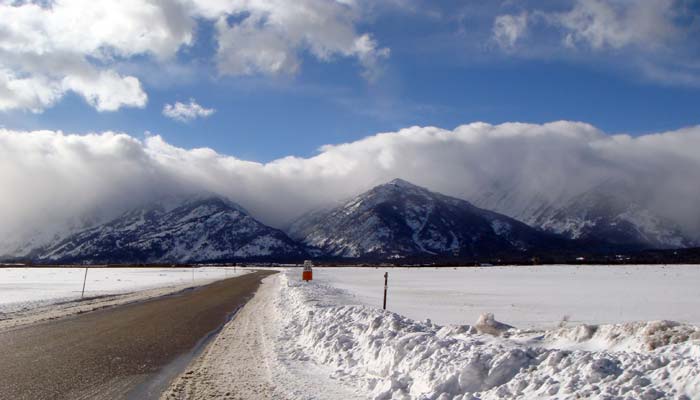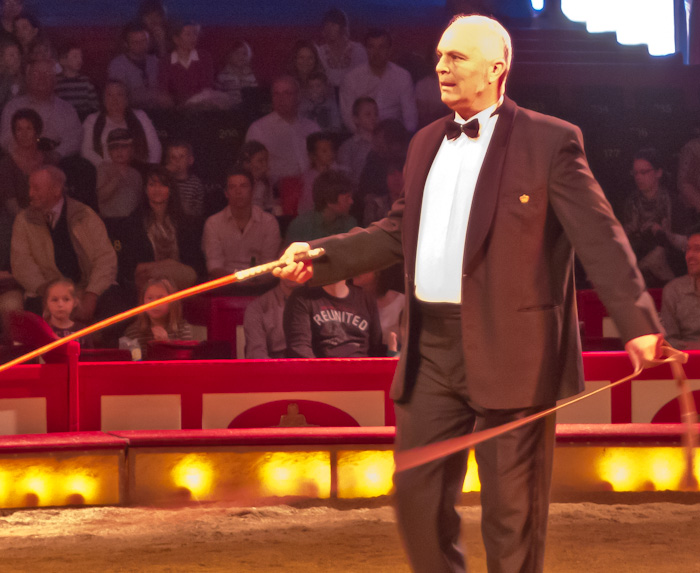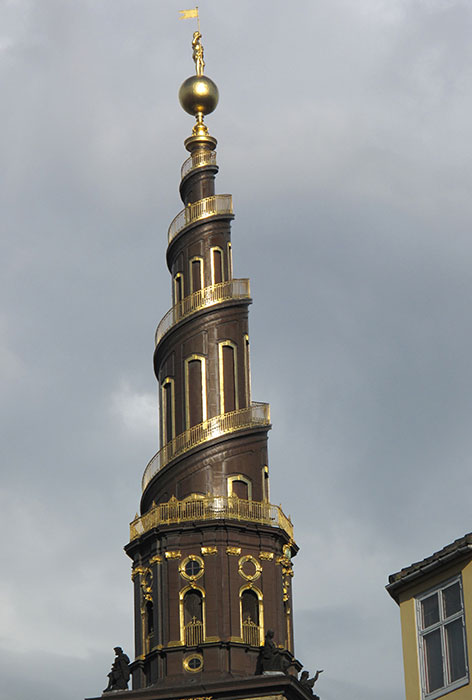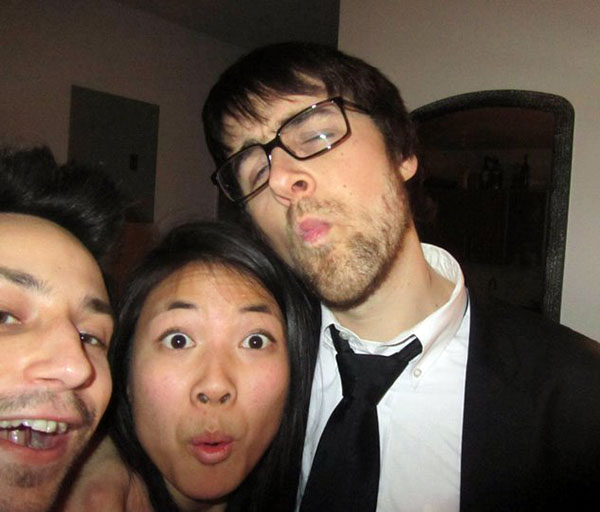
I Can’t Escape From You
by Brendan Byrne

Every time the train stopped, I thought they were going to take me off and shoot me. And we stopped often; oh shitgibbering loveless god did we stop often. For the work crews to lay down new tracks, the old ones shoddily made and never maintained. New, new, make it new; everything has to replaced, don’t you know. Otherwise, nothing works. We stopped for repairs to the long, caterpillar trains cars themselves, their thin plastic casings wilting in the weak, white, winter sunlight. To bury the occasional prisoner. And once, you might call it paranoia, I would call it my only blessing, a highly developed eighteenth sense equally devoted to suicide and survival, allowed me to see, just as the carriage jerked forward after a particularly brief, seemingly-meaningless stop, a millisecond’s glimpse of a pair of gray jackets leading a tall, gangly man out into the wasteland, his hands bolted behind his back.
Attuned to my possible death as I was, still there was no way that I was keyed up enough to imagine Withold would be my executioner. Withold: flipping importantly through the daily rags, as if he’d find something other than the political scum sessions or the preteen snatch that adorned opposing but complimentary pages, occasionally dropping off into unimpeachable, drooling sleep, other times masturbating for hours on end in the small toilet down the corridor. As long as I woke up every morning and Withold was there, mumbling something in his dreamless sleep or trying to get his regulation gray vest over his bulging midsection, I knew that I wouldn’t be killed in the immediate future.
The weeks became months, the slow gait of the train slowed to a cripple-shuffle, and the stations grew further apart, the repair stops more frequent, the number of passengers lower and lower (the gunmetal wasteland never changing, mind.) I ran out of books, disgusting, limp books, the only books that are allowed to be published anymore, books to hate, though I do not think I could even bring myself to hate them. Hate: a last resort, a stupid howl. It can be sickening to have it taken from you, and it had been, mind, taken from me. I could not hate the desperate, dying work crews, the sickly, stick-figure conductor, the paleontologist who sat in the corner and ate only lima beans, the willowy girl, not a pinch of fat on her, who said she was going to see her father out working the border, she saw him once a year, he cut figures from trees for her. I couldn’t even hate Withold. I could have hated all these people a decade ago, and I’m sure I did. I hated the weak, the ignorant, the useless: ‘other people.’ Ten years ago, twenty, and these people, those that were alive back in my salad days, surely fell under the category of ‘other people.’ Now, the only one I have left to hate is, well, surely you can figure that out all by yourself.
One dusty, fog-ridden, stop-heavy afternoon, Withold brought me an old cell phone, one of the fat-screened, tiny wrecked-up ones the kids and moms and dads on my old block would have clawed each other’s weak and wet parts out for; its bug-like carapace a battered and blackened lizard skin green. The call chip had been yanked out, its receiver plugged with shit-brown chewing gum. Withold held the phone in front of my face for a long moment; I couldn’t figure out what its purpose was. Then he told me to take it, his voice the voice you use on a moron, but when I looked up into his face, I saw the quivering of real emotion, the facial muscles herky-jerking, the baby-boy-blue eyes warping. I took the old phone away from him and held it up in thanks, but his body snapped away, turning, then immediately stilled for an absolute second, after which his shambolic, stressless style took over again, and he became once more the droopy eyed, useless bastard I’d gotten to know and vaguely appreciate those couple endless months.
The screen was blank and black. I pushed in the power button. As the phone over-shook and chimed hello, I settled back onto the barely white hard-slab cot in the small, shabby, single-portholed compartment I was allowed to be alone in. I was a prisoner; no one wanted to share. The image flickered onto the screen with its soft and mild color palette: the gloomy corner of a darkened room, dark without being collapsed. There is maybe a bed, maybe a cabinet flush against the wall, but the POV is too high-slung to tell. To the right, there is a large, cross-cut window where light lays lonely, not bursting forth or taking over the frame, as other shots might show. In the foreground, staring up at the place where the camera might be but is not, stands O., her yellow-straw, peeling-paint hair carved down tight against her skull. Her face is fuller yet somehow more less than before, neither fat nor drawn. She wears a simple black suit closed at the neck; she looks boyish and classical. She does not smile nor does she unsmile; she is not serious or questing or curious or lively or livid. But she is alive: she turns away, twists actually, and you can see the motion of her neck, of her elbows, of her hips. Alive, and undamaged. The video ends, and the image freezes, and then it begins again.
I watched her empty, searching gaze, I watched the contours of her skull appear as if anew, I watched her twist away from where the camera was not, I don’t know for how long. Withold finally came and took the phone away, but, placing it in his vest-pocket as carefully as he could do anything, stared at me briefly, as if uncomprehending what was showing across the screen that was my face, then turned and walked away down the corridor.

As the journey grew longer, and it actually looked like I might reach my destination, a new thought began to play in my mind, like a five year-old plays with daddy’s shotgun: could they possibly be bringing me all the way out here just to shoot me when they could have easily enough had me shot in the exercise yard, in the street, in my apartment? Taken just far enough to see the rusted, flimsy chain-link fence that passed for a border and then, blam-de-blast, head explodes, eyes fixed on that who-knows-what-width stretch of darkness, that tangle of bushes, that clump of wild cherries?
Of course they could. They are cruel cunts, and they would have enjoyed it.
It wasn’t until I saw the car that I determined I would live.
The pair of bootstrap boys scrambled out of it, giggling and making vroom-vroom noises with the hollows in their cheeks, their automatic rifles wiggling at their sides. It was probably the most exciting day of their lives. So strange that is was mine as well, but for such a different reason. They got to drive a car. I got to leave my country, my home, the place of my birth, the only place I had ever lived, a place which inspired in me a disgust more potent than any place foreign ever match.
One of the giggling boot-strap boys, his crimson hair splotched with blondey bits, its tufts shorn, his lips and cheeks filthy with chocolate, tossed me the set of keys. The metal was still sticky with the sweet filth, and I wiped it against my khaki trousers as I walked towards the car in the surgical-theatre floodlights.
A gunboat. What my grandfather would have called it. Long and dark green. Head-lights, tail-lights as big as giants’ eyes. A windshield thick and strong and bug-splattered. Seven-foot wide. Seats like couches. Black leather, worn like nothing gets worn these days. Shit gets worn now, it breaks, tears, dissolves. Not so this behemoth. Everything original: silver ashtrays, ancient radio, the wheel huge as a mariner’s. Nothing changed, nothing improved.
And I couldn’t help wondering if perhaps it was not me that was escaping but the car. If it had stayed, it would have just been overhauled, ripped to shreds, upgraded with the latest security systems and computer equipment and given to some princeling for services in rendering, and then it would stop working soon enough, and be scrapped. But because of me, it was granted a rare, if not unprecedented, opportunity for escaping unscathed. I had no such illusions about myself.
Out of mere curiosity, I turned to Withold, the question forming on my lips: where did this car come from? Some scrap metal haul? Some underwater excavation? An ancient anarchist, holed up in a shack with ninety pounds of beat mags, a couple squirt guns, and this unkillable machine? Where do things just remain these days? But Withold was blowing his nose into his thick, scabby hands. He looked up to me, his porpoise face dull and done. He smiled weakly and raised his left hand, the one unblemished by lengths of snot. He turned and walked back to the train half-a mile back, its cyclops blue light barely visible in the pitch. End of the line. They were overhauling it, making the necessary changes to the caboose and engine-car, switching them.
Suddenly, my heart started going fast; I began to fear that they had killed me out here, poisoned something I ingested, poisoned the air, that it was one last cruelty to show me that my plan was nothing but a farce. Certainly that was it; there was no other possible explanation. My plan couldn’t work; I’d never had a plan work before in my life. But fuck them anyway, I thought, fuck them good and hard; even if they cut me down, I’m going to make it as far as I can, and I won’t show any god-blessed fear.
A smile shook across my face, and I jerked the passenger door open and slid across the leather to the driver’s well. Windows up and doors locked and seat belt on. I hadn’t been in a car in almost a decade, but I performed the matrix of required action, my hands strangely steady. I definitely felt an unusual surge in my loins. Key into ignition, twist. The car roared to life. Full tank. Behind me, on the back seat, were ten gallons of gas in three separate metal containers. A knapsack full of rations. A shotgun with five boxes of shells.
“Road trip,” I said out loud, in that sing-song way students used to use when announcing to the world their getting-fucked-up holiday plans. I loaded the shotgun and stuck one of the condensed blood-sausage bars between my teeth. Smiled but couldn’t bring myself to laugh.

I stepped gingerly on the gas, and the car, accommodating, minced forward. I flicked on the headlights, and the thirty feet of healthy shrub-grass and small woodland animal carcasses before me was illuminated. The bootstrap boy opening the gate raised a knife-hand to ward off the glare. I switched the lights off. No need to attract too much attention. I’d heard lots of lies about what The Wild was like, none of them rosy. But that didn’t mean that the truth was, in fact, rosy. The moon and star-light were enough to show the small dirt path beginning just past the chain-link fence; it went straight on, lined by thick trees and fat shrubs. In the self-same light, I saw the boyish killer stick out a curled tongue and lap it at me. I stepped on the gas and rocketed past him, feeling the quake of fear, the rush of blood to genitals, the puckering of my asshole, waiting for the bullet to the spine, the shrapnel to the skull, for the rust-blood red iron gate to slam shut before I managed to exit. None of these things happened, and I mounted a slim, thorny dirt road, edged by the shards of saplings and the bodies of birds, both cut down by indiscriminate fire, my teeth pressed so hard together that I could feel my inexpert fillings start to give. I sucked breath and threw myself back against the sagging seat. Unrolled the window. There was still the city smell on me. Like anesthesia, like melted mucus. But there was another scent carried by the wind. Something fresh and rotting at the same time. The heavy odor of trees and of animal musk and of emptiness. A faint sniff of the sea.
I was barely past the gate when I pulled over to the side. I sat there, panting. They were watching me, I knew that; maybe that was what I needed. To have my new freedom be observed. Or: I couldn’t keep driving till I had done something. I didn’t now what it was. Weep or scream or gnash my teeth and rend my clothes. Nothing made sense. So I laughed. It was fake, bullshit, like an extra on the sound-stage. But it was enough. It was some display of emotion, and I sat there, laughing a chest-cracking cackle until I had no air left and my vision began to go green and lush, and then I began to breathe again, and all I could think of was laughter. The laughter I had caused: the hateful, sardonic cringing laughter. What was the proper kind of laugh to capstone my life? Something guttural and vulgar? Or some light and airy and ultimately fake to the bone? Or was it a moan, something you give off while twisting the newsprint in your fist, grimacing, wishing it was their goddamn necks. I wanted to keep laughing, to try on different tones, try to find what was right, but now I didn’t want them observing me anymore. I wanted to be gone. It had been so long since I was alone. No, that was incorrect. I’d been alone, extremely alone, but I’d always been observed. And, really, fuck that. I wiped my eyes. Blinked twice. Pushed the car into first and began to drive, the road leading up and out onto the coast.
That was then, all of twenty seconds ago; this is now. I am free; I am trapped. She is saved; she is damned. The man I am going to kill, well, I am going to kill him. Or maybe I won’t. This, this is the moonlight drive.
The road ahead is coaxed into view by the headlights, the passenger side window is down, the air hisses past, and the car underneath burdens me across asphalt, the engine hums; there is nothing separating me from the car, the car from the road, the road from the air, and I get a glimpse through the trees on my right to where this little dinky, dusty road is taking me, to the coast, where the shoreline and the ocean meet, where there is no difference between the black water and the black sky. I hope when I’m close enough, I’ll be able to get a glimpse of the horizon itself. When was the last time I actually saw a horizon, where I wasn’t closed in, penned in and horribly comfortable, like a veal-calf fed fat and prodded thin. For the last near decade, there has been no difference between the horizon and me. The car drifts in the middle of the road, neverminding the white jots that bisect it, the scrub brush that tufts up through the asphalt, and I realize that I am completely cold, as cold and bloodless as the night.
Try as I might I kept thinking about laughter.

I had been, in a way, a man who made others laugh. A weekly column, always a weekly column in whatever magazine or paper would print me (and there always was at least one), a shouting head on television, forehead-touching like if I just played the magus a bit more I’d have all the answers, and, eventually, I always did have an answer, but that answer was always a piss-take, whether I knew it or not. And then: just before civil liberties were cut off like blood-flow to the brain, they chopped me down like a withered trunk, silencing me so that I had to go samizdat, had to go completely online (until even that wasn’t even an option anymore), and I had to print bloody hand made shit in the basement of pubs, abandoned fall-out shelters, gutted churches (we were always drama queens, we hunted, with an eye for our own scenery.)
And I had loved that, hadn’t I? Yes, declining personal freedoms, a corrupt, shoddy, tyrannical government, myself blacklisted by every form of media still available to the public, my own personal fame growing among those who could still read, or at least those of them who hadn’t given up completely. Sure, it was fucking paradise: no weak-kneed editors shitting themselves when I really lit into the bastards. Everyone was a target, just the way it was always supposed to have been, the real way journalism was supposed to have been.
And then it was gone.
They found the press and knocked it to pieces, shot the publishers, and stuck me in a hole that nobody could shine a light into for three years and four and a half months. Where I was realized that there was no hope. I’d fought my war, and I’d goddamn well lost it, every inch of it.
But I had made people laugh, I told myself. I had made people laugh.
And now I wonder: was I ever really funny? I channeled hate, I channeled anger, and the laughter that I heard, it was the laughter of the terminally abused, trying to get cathartic with me; there was always more rage, more teeth gritted in utter agony that this is the world we live in, that these are our times, that this is the nation that we were born into and must account for when history is written, if history will ever be written again. I did the right thing, maybe, but I did not do a good thing, I did nothing joyous, I did nothing humorous. Was I ever really funny? There is laughter that is caused by humor. You can hear it: it comes from the chest or the sinuses or actually even the belly: it explodes out, and it is mirth and it is uncontrolled. There is another kind of laughter, and that is the simpering kind, and I had no use for that (you use it to placate your boss or your torturers, and I never used it not even when they sharpened the knives), and then there is the third kind of laughter, and it is the laughter of hate and of irony and of distance, and that was my laughter, I owned it, and nothing, nothing about it was funny.
In my jail-time, in my janitor-time, hell, even on the train, I had idealized those days before everything went to hell. But had I enjoyed them? Abandoned women. Innumerable bottles of booze, lithe journalism students hoping for a piece of that wisdom, handfuls of pills, next to no sleep. Grim newsrooms of hateful bastards wanting my head on the wall. Vicious fights over a turn of phrase. Reams of paper wasted trying to turn my talents to something a bit more noble, a bit longer lasting than yesterday’s sneers. Everything focused on: this article, this take-down, this cocksucker who needed his head served to him, scalped and skull peeled back, so he could munch on his own shit-brains. Everything else burnt to the goddamn ground.
The answer is, of course, that I enjoyed every fucking second of it. It was what I was made to do. To piss off the powerful, to tweak their gonads and buzz about their heads. I never doubted myself until they had put me in prison. It wasn’t the violence or the squelching, nutritionless food that bothered me. It wasn’t the overcrowding or the rape or the inane boredom. It was the fact that I was still alive. I hadn’t been enough of the threat for them to neutralize me. Hell, they neutralized Till, and he’d barely carried ten percent of the popular vote. They shot D. D. on the street, and all she’d done was deviate from the party line over some minutiae, and she was a goddamn movie star.
I hadn’t been worth a bullet.
Things like that threaten to make you lose your sense of humor.
And O., of course, and O.
Heavy flannel shirt for a cool summer night.
Heavier black eye-shadow. Straw-yellow hair cut short, ragged. Big lips. A little tummy, maybe, under all that cloth. Small, porcelain hands. She sits on the back of a bench, feet splayed on the ass-rest. A branch bent down, its flowerings drooping lethargically over her, like God put it there to hide her from me. Her face: peasant plain? Stunningly beautiful? That would depend on the lighting, and that shifted as I came towards her, the early morning dim moon-light making her look different with every step I took. Her hands knitted together. A small rucksack, ex-army, between her feet. She stared at me, blooming.
I charm away the vision, but what it leaves with me is a patina of I don’t know what smeared over me.

The night, I’m as cold as it, as bloodless as it, but, but, but, but, but. There is no more grasping for me. I have made my deal and I have sealed it with a kiss to the Devil’s ass-cheek. I will get through The Wild; The Nation won’t bother me in the slightest. I am going into the North Country, and when I get there, I am going to keep driving. And the man I am going to kill, well, I’m not going to kill him.
I am free.
I am free.
I am free!
The windshield explodes around me.
Now, that’s funny.
About the Author

Brendan Byrne lives and works in New York City. "I Can't Escape From You" is the first chapter of a novel-in-progress with the same title. Brendan's criticism has appeared in Strange Horizons, L Magazine, The Rumpus, The Brooklyn Rail, and the now sadly defunct New York Press. He is the editor of The Orphan, a webzine devoted to the otherwise unpublishable. He is the one on the right.
Post a comment on this story!